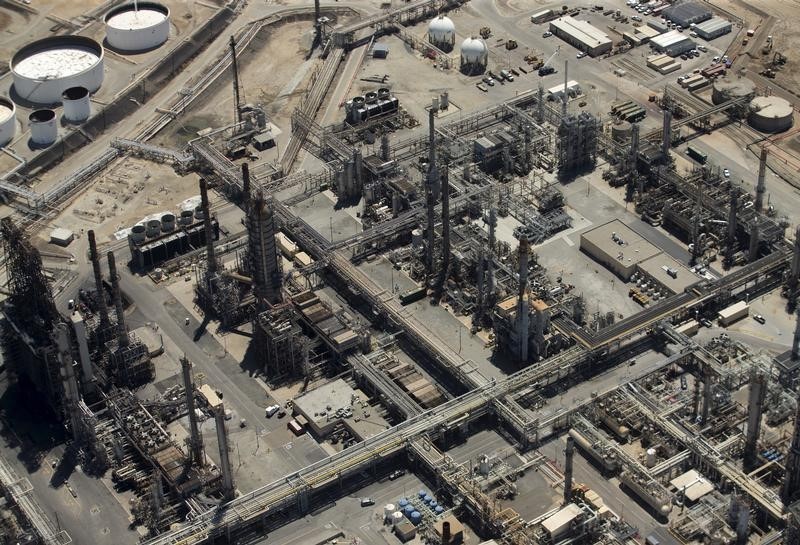
Investing.com– Oil prices settled lower Friday, but still snapped a three-week losing streak, buoyed by hopes that a seasonal fuel demand over the summer period is poised to gather steam and dent crude stocks in the weeks ahead.
At 14:30 ET (18:30 GMT), fell 0.2% to settle at $78.45 a barrel, while fell 0.1% to $82.66 a barrel.
Oil snapped three week losing streak after OPEC+ assurances
A bulk of crude’s gains this week came as prices rebounded from four-month lows, after the Organization of Petroleum Exporting Countries and allies (OPEC+) reiterated its commitment to keeping production low to support prices.
OPEC+ had, during its June meeting, flagged the possibility of scaling back its 2.2 million barrels per day voluntary production cuts later this year- a signal that was received negatively by the crude markets.
The reassurance from OPEC arrived as traders digested mostly bullish forecast for global oil demand. The U.S. Energy Information Administration lifted its world oil demand estimate to 104.5 million barrels per day for next year, up from a prior forecast of 104.3 million bpd, while OPEC maintained its outlook for strong global oil demand in 2024. In sharp contrast, however, the International Energy Agency cut its forecast for 2024 global crude demand by 100,000 barrels per day to 960,000 bpd.
Softer U.S. Inflation data seen this week, spurring hopes for sooner rates cuts, also helped lift sentiment on oil, with many now pricing in two rate cuts for the year.
Putin lays out peace conditions
President Vladimir Putin said on Friday, on the eve of a peace conference in Switzerland to which Russia has not been invited, that his country would cease fire and enter peace talks if Ukraine dropped its NATO ambitions and withdrew its forces from four Ukrainian regions claimed by Moscow.
These conditions are wholly at odds with the terms demanded by Ukraine, with Kyiv stating that peace can only be based on a full withdrawal of Russian forces and the restoration of its territorial integrity.
The weekend summit in Switzerland, which will be attended by representatives of more than 90 nations and organisations, is expected to shy away from territorial issues and focus instead on matters such as food security and nuclear safety in Ukraine.
(Peter Nurse, Ambar Warrick contributed to this article.)

